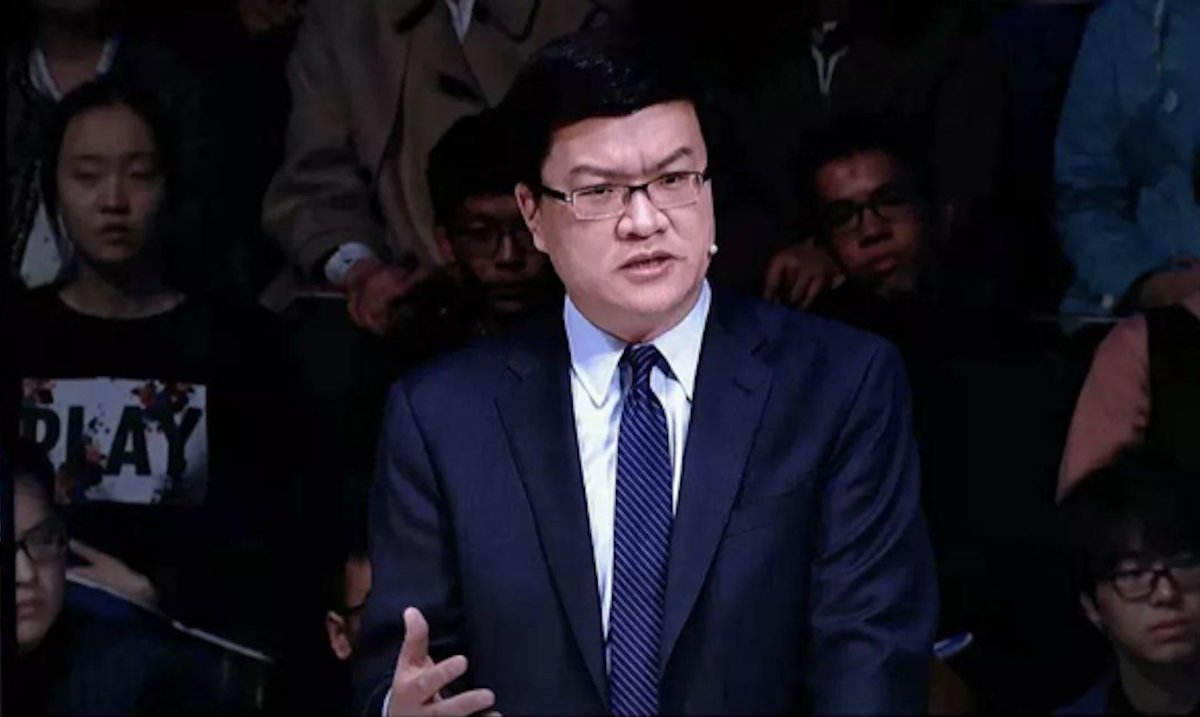
How should #China respond to the growing political divide between China and the West?
▫️ Yang Ping (杨平) advocates building a new international system led by China and countries in the Global South rather than the West.
🧵🧵🧵
sinification.substack.com/p/facing-the-g…
▫️ Yang Ping (杨平) advocates building a new international system led by China and countries in the Global South rather than the West.
🧵🧵🧵
sinification.substack.com/p/facing-the-g…
🔹The author: Yang is the head of the highly regarded Beijing Cultural Review (BCR). He is also the director of the Longway Foundation which publishes BCR. The foundation describes its publication as “the most influential magazine of intellectual thought and commentary in China”. 

▫️ Yang’s views in a nutshell:
1⃣ “Capitalist politics” are no longer in line with “capitalist economics”. The former now undermines globalisation, while the latter supports it.
1⃣ “Capitalist politics” are no longer in line with “capitalist economics”. The former now undermines globalisation, while the latter supports it.
2⃣ #Sanctions , export controls, friend-shoring and alliance-building are damaging the #worldeconomy and further alienating China from the current US-led international order.
3⃣ China must respond to this growing trend by building a “new type of international system” with other countries in the Global South.
4⃣ BRI projects should be increasingly focused on achieving this goal and thus allow more room for loss-making endeavours.
4⃣ BRI projects should be increasingly focused on achieving this goal and thus allow more room for loss-making endeavours.
🪧 Yang's ideas are not particularly novel but are nevertheless of note in that they represent yet another viewpoint in the ongoing debate over how 🇨🇳 should respond to the increasing tensions that characterise its relations with the #UnitedStates and other Western countries.
🪧 As evidenced in previous editions of Sinification, opinions on this question can range from Da Wei (达巍) stressing the importance of preserving if not strengthening ties with the West and Shen Wei (沈伟) arguing in favour of reforming the #WTO and ->
sinification.substack.com/p/how-china-sh…
sinification.substack.com/p/how-china-sh…
-> building up a network of free trade agreements to Ye Hailin (叶海林) emphasising the need for #China to demonstrate its #military might to demobilise US allies and Lu Feng (路风) calling for self-reliance and greater assertiveness in the field of tech.
sinification.substack.com/p/us-china-chi…
sinification.substack.com/p/us-china-chi…
🪧 A certain amount of overlap certainly exists among these perspectives but the differences are nonetheless striking.
To follow this debate and receive weekly insights from 🇨🇳 think-tank analysts & scholars on a range of international topics:
sinification.substack.com
To follow this debate and receive weekly insights from 🇨🇳 think-tank analysts & scholars on a range of international topics:
sinification.substack.com
• • •
Missing some Tweet in this thread? You can try to
force a refresh








